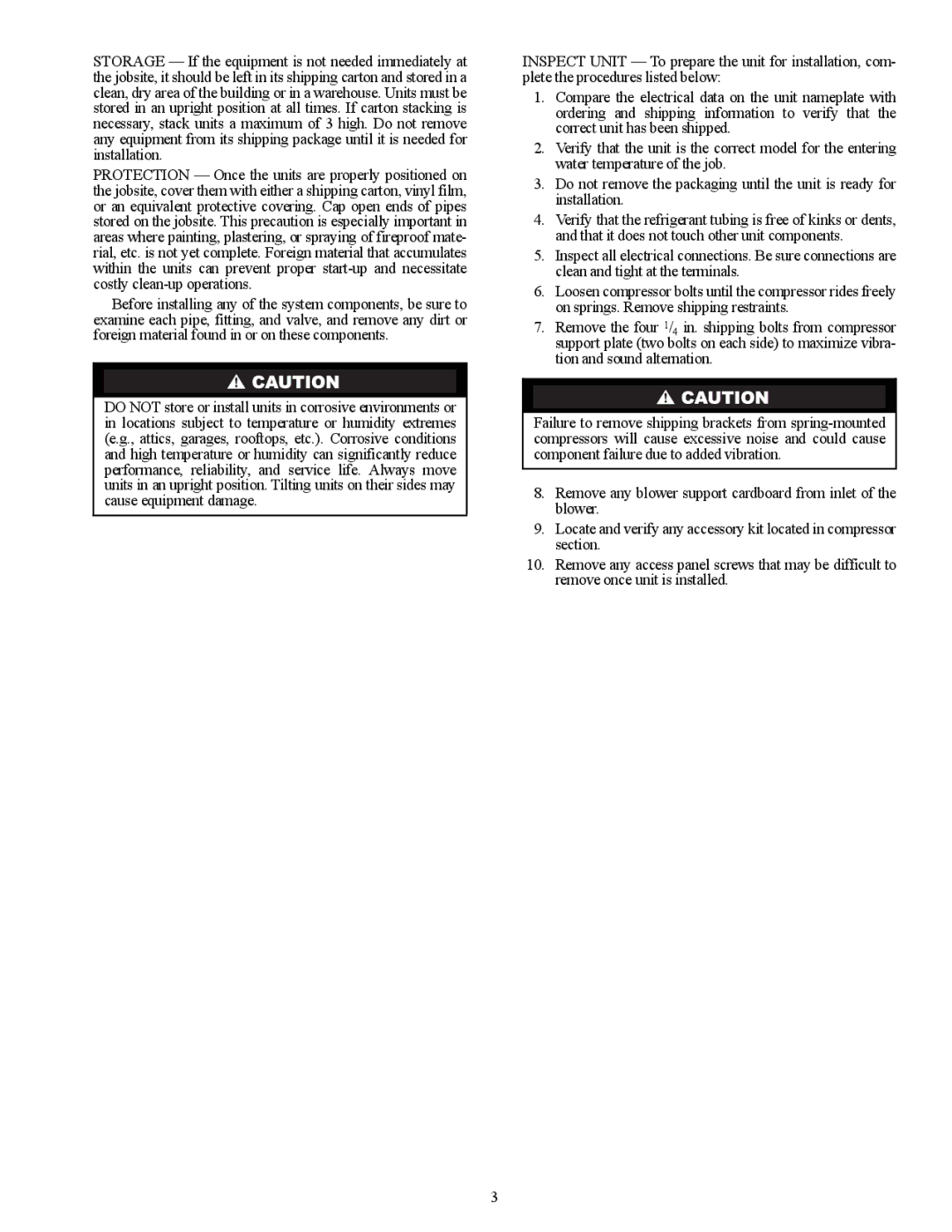
STORAGE — If the equipment is not needed immediately at the jobsite, it should be left in its shipping carton and stored in a clean, dry area of the building or in a warehouse. Units must be stored in an upright position at all times. If carton stacking is necessary, stack units a maximum of 3 high. Do not remove any equipment from its shipping package until it is needed for installation.
PROTECTION — Once the units are properly positioned on the jobsite, cover them with either a shipping carton, vinyl film, or an equivalent protective covering. Cap open ends of pipes stored on the jobsite. This precaution is especially important in areas where painting, plastering, or spraying of fireproof mate- rial, etc. is not yet complete. Foreign material that accumulates within the units can prevent proper
Before installing any of the system components, be sure to examine each pipe, fitting, and valve, and remove any dirt or foreign material found in or on these components.
DO NOT store or install units in corrosive environments or in locations subject to temperature or humidity extremes (e.g., attics, garages, rooftops, etc.). Corrosive conditions and high temperature or humidity can significantly reduce performance, reliability, and service life. Always move units in an upright position. Tilting units on their sides may cause equipment damage.
INSPECT UNIT — To prepare the unit for installation, com- plete the procedures listed below:
1.Compare the electrical data on the unit nameplate with ordering and shipping information to verify that the correct unit has been shipped.
2.Verify that the unit is the correct model for the entering water temperature of the job.
3.Do not remove the packaging until the unit is ready for installation.
4.Verify that the refrigerant tubing is free of kinks or dents, and that it does not touch other unit components.
5.Inspect all electrical connections. Be sure connections are clean and tight at the terminals.
6.Loosen compressor bolts until the compressor rides freely on springs. Remove shipping restraints.
7.Remove the four 1/4 in. shipping bolts from compressor support plate (two bolts on each side) to maximize vibra- tion and sound alternation.
Failure to remove shipping brackets from
8.Remove any blower support cardboard from inlet of the blower.
9.Locate and verify any accessory kit located in compressor section.
10.Remove any access panel screws that may be difficult to remove once unit is installed.
3
